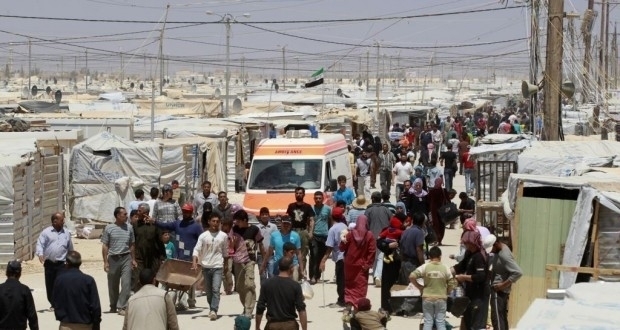A study published by the International Labor Organization has revealed that Syrian workers in Jordan get fewer benefits than Jordanians working in the same sector, while Syrians working without contracts recieve lower wages than Jordanian workers working in unmonitored jobs.
The study, entitled "The Impact of Syrian Refugees on the Jordanian Labor Market", showed that 15 percent of Jordanians receive 200 Jordanian dinars ($282 USD) per month, while 44 percent of Syrian refugees working outside the camps are paid less than 200 Jordanian dinars per month.
The study reported that Syrians work longer hours, as 30 percent work more than 60 hours per week, and 16 percent work 80 hours or more per week. The study, based on a questionnaire submitted to around 4,000 Jordanian and Syrian families, concluded a greater number of Syrian refugees would be forced to enter the labor market if humanitarian aid began to dry up.
The report found that the increase in the unemployment rate among Jordanians in host communities in Amman, Irbid and Mafraq has risen by about 30-40 percent among women, and 10-17 percent among men between 2011 and 2014, which "constitutes a further pressure on the Jordanian authorities to implement the current labor regulations, such as the limit of minimum wages and safety conditions".
The study found that the highest unemployment rate among Jordanians was in three areas with the highest concentration of Syrian refugees – Amman, Irbid and Mafraq governorates in the country’s north – where unemployment rates have peaked between 14.5 and 22.1 percent since 2011.
The study confirmed that 51 percent of male and 7 percent of female Syrian refugees are participating in the labor market, "which poses a serious threat to the future of the labor market", the report said.
The majority of low-paid skilled Syrian refugees work in crafts jobs that emerged after 2011, while some work in occupations that existed prior their arrival.
The study recommends providing Syrian refugees with work permits in some sectors, noting that "if this issue remained untreated, illegal work will continue and will impact negatively on Jordanians and Syrians alike".
Translated and edited by The Syrian Observer


